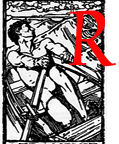
rowntree, who points out that unskilled laborers and their families eat considerably less well that inhabitants of the workshouse, makes clear that the primary cause of poverty and its effects upon health is simply low salaries. As he emphasizes, “wages paid for unskilled labour in York are insufficient to provide food shelter and clothing adequate to maintain a family of moderate size in a state of bare physical efficiency [i.e. minimum of personal health]” (133). He then emphasizes that the average worker's “diet is even less generous than that allowed to able-bodied paupers in the York Workhouse” (133).
Unlike many early Victorian commentators on the condition of the working, classes, Rountree places no blame on gin, beer, or other forms of alcohol. Indeed, his workers and their families have so little money, they can't afford such indulgences. Rountree crams his book with graphs, tables, and reports of sanitary inspectors of homes, but the following devastating paragraph serves as one of his most effective descriptions of the lives of the working poor:
Let us clearly understand what "merely physical efficiency" means. A family living upon the scale allowed for in this estimate must never spend a penny on railway fare or omnibus. They must never go into the country unless they walk. They must never purchase a halfpenny newspaper or spend a penny to buy a ticket for a popular concert. They must write no letters to absent children, for they cannot afford to pay the postage. They must never contribute anything to their church or chapel, or give any help to a neighbour which costs them money. They caimot save, nor can they join sick club or Trade Union, because they cannot pay the necessary subscriptions. The children must have no pocket money for dolls, marbles, or sweets. The father must smoke no tobacco, and must drink no beer. The mother must never buy any pretty clothes for herself or for her children, the character of the family wardrobe as for the family diet being governed by the regulation, "Nothing must be bought but that which is ab- solutely necessary for the maintenance of physical health, and what is bought must be of the plainest and most economical description." Should a child fall ill, it must be attended by the parish doctor; should it die, it must be buried by the parish. Finally, the wage-earner must never be absent from his work for a single day.
If any of these conditions are broken, the extra expenditure involved is met, and can only he met, by limiting the diet; or, in other words, by sacrificing physical efflciency. . . . [133-34]
Rountree further explains that even well employed laborers earn so little money that only the husband, the wage earner, receives enough food to maintain eniugh strength to retain a job and bring home money for the family. “We see that many a labourer, who has a wife and three or four children, is healthy and a good worker, although he only earns a pound a week. What we do not see is that in order to give him enough food, mother and children habitually go short, for the mother knows that all depends upon the wages of her husband” (133). Rountree quotes several women who hide their hunger and those of their children husbands who otherwise would insist on sharing their meals.
Powerfully written abut the devastating effects of disastrously low wages upon the daily lives of unskilled workers and their families, Rountree’s major emphasis falls on the effects of poor nutrition on health, particularly on infant and child mortality.
Links to Related Material
- Slums and Slumming in late Victorian London
- Victorian Workers' Wages and the Quality of Life
- Five Alternating Periods of Want and Comparative Plenty in the Labourer’s Life
Bibliography
Rowntree, B. Seebohm (Benjamin Seebohm). Poverty, a Study of Town Life. London, Macmillan: 1902. Internet Archive online version of a copy in the Harvard University Library. Web. 2 July 2022.
Created 2 July 2022